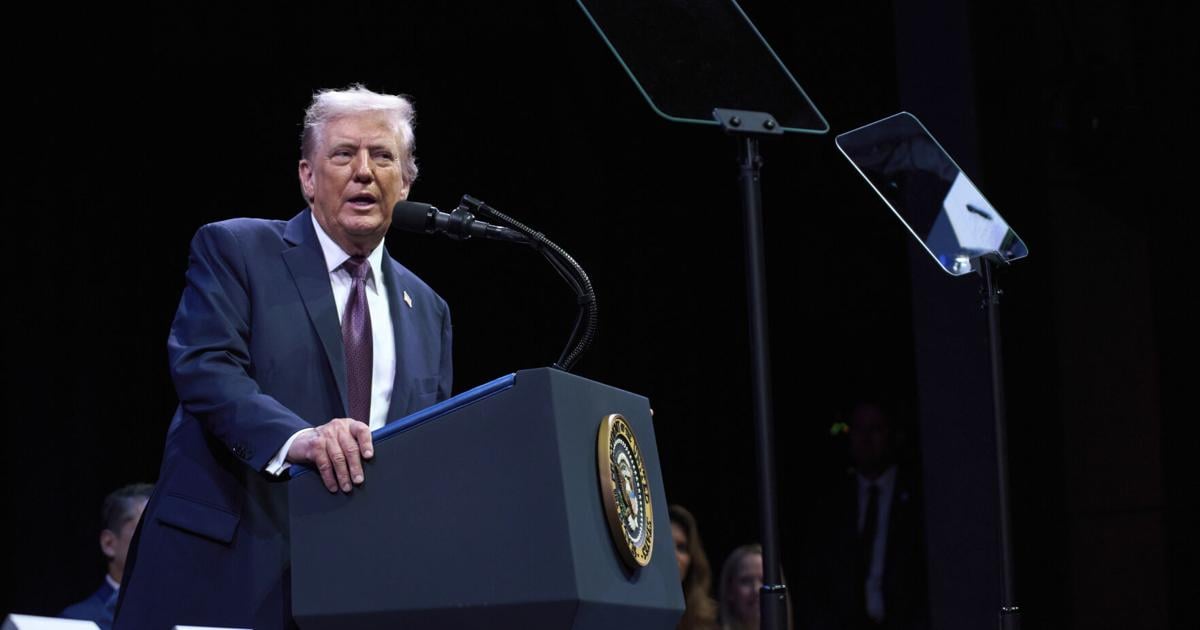International students are facing significant challenges in their pursuit of education in the United States due to the travel ban imposed by the Trump administration. The restrictions, which affect citizens from 19 countries, have left many prospective students stranded after investing time and resources in their plans to study abroad.
Saghari, a 21-year-old from Afghanistan, dedicated years to improving her English, hoping to enroll in a business administration program at a private liberal arts college in Illinois. She had anticipated starting this fall, but the travel ban derailed her aspirations. “You think that finally you are going to your dream, and then something came up and like, everything’s just gone,” Saghari expressed, reflecting the sentiments of countless students impacted by the ban.
The travel restrictions have caused logjams in visa applications, particularly affecting students who received admission offers. The State Department reported issuing over 5,700 F-1 and J-1 visas to individuals from the affected countries during the summer months, with citizens of Iran and Myanmar receiving more than half of these approvals. Despite this, many students are not arriving at American campuses this fall. Some have chosen to defer their admissions, while others reconsider their options amid concerns over the broader immigration policies of the current administration.
Pouya Karami, a 17-year-old student from Shiraz, Iran, had focused his college search exclusively on the U.S., citing the unparalleled research opportunities available. He planned to study polymer chemistry at Pittsburg State University in Kansas but postponed his admission for a year due to the travel ban. He remains hopeful, preparing for his embassy interview and advocating for a reassessment of the travel ban’s impact on students.
The ban affects citizens from a total of 12 countries, including those from Africa, Asia, the Middle East, and the Caribbean. Most individuals from these nations are unable to obtain new visas, although exemptions exist for green card holders, dual citizens, and certain athletes. Trump justified the ban citing national security concerns and high visa overstay rates, asserting that the restrictions would remain until deficiencies in the affected countries’ screening processes are addressed.
The consequences of the travel ban extend beyond individual students. Many families, like that of an 18-year-old student from Myanmar, have prioritized their child’s education, saving diligently for the opportunity to study abroad. The student, known by the nickname Gu Gu, shared the excitement of his acceptance to the University of South Florida with his family, who celebrated with enthusiasm. However, news of the travel ban shattered his hopes to travel to the U.S. this fall.
Gu Gu’s situation reflects a broader trend among his peers in Myanmar, where many have been drafted into the military or joined resistance groups since the military coup in 2021. He had longed for the freedoms associated with studying in the U.S., expressing disappointment over the abrupt change in his plans. “I was all in for U.S., so this kind of breaks my heart,” he said, noting he could not defer his acceptance.
With the door to the U.S. closing, students like Saghari are exploring alternative educational options. After postponing her visa interview in Pakistan, she ultimately canceled it and looked into universities in Europe. However, she faced additional hurdles there, including the requirement to retake an English proficiency test that had expired. Despite these setbacks, she has been accepted to a Polish university, although her application remains under review.
Another example is a 28-year-old Iranian researcher who preferred to remain anonymous. He was unable to travel to the U.S. for a visiting scholar position at the University of Pennsylvania due to the ban. He continues his research in Tehran but expressed frustration over missing the opportunity for a fully funded project. As he contemplates applying for research positions in Europe, he feels disheartened by the barriers that have emerged. “You lose this idealistic view of the world,” he remarked, reflecting on how the situation has altered his perspective on opportunities abroad.
The travel ban has not only disrupted the dreams of individual students but has also closed off pathways for international collaboration and knowledge exchange. The impact resonates deeply within families and communities, highlighting the complexities of global education in the face of shifting immigration policies.
As the situation unfolds, many students continue to advocate for their right to education, hoping for a resolution that will allow them to pursue their academic aspirations in the United States. The challenges they face speak to broader issues of accessibility, opportunity, and the ongoing dialogue surrounding immigration and education policy in the U.S.
Todd Feathers contributed to this report. The Associated Press’ education coverage receives financial support from multiple private foundations. AP is solely responsible for all content.






































































